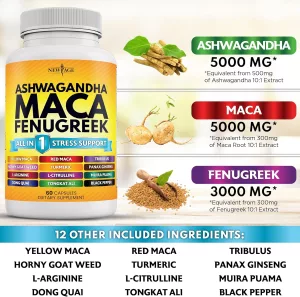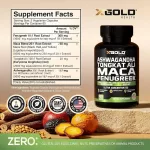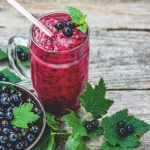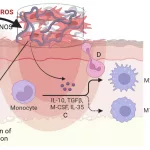Certain supplements and natural compounds, such as probiotics and curcumin, might help support dopamine production and improve mood.
Dopamine is a neurotransmitter in the brain involved in cognition, memory, motivation, mood, attention, and learning.
Under normal conditions, your nervous system manages dopamine synthesis effectively. Still, various lifestyle factors and health issues can lead to reduced dopamine levels.
Signs of low dopamine can include losing interest in activities you once enjoyed, diminished motivation, and apathy.
Below are 10 supplements that may help enhance dopamine and mood.

1. Probiotics
Probiotics are live microorganisms that inhabit your gut and support digestive and overall health.
While harmful gut bacteria can suppress dopamine production, probiotics may help increase it, which could improve mood.
Research on probiotics is expanding, but more studies are necessary to fully clarify their effects on mood and dopamine.
You can introduce probiotics through fermented foods like yogurt and kefir or by taking a probiotic supplement.
2. Ginkgo Biloba
Ginkgo biloba is a tree species from China that has been used for centuries as a natural remedy for various ailments.
Though findings are mixed, ginkgo supplements may benefit mental performance, brain health, and mood for some people.
Some studies reported that long-term Ginkgo biloba supplementation raised dopamine in rats, improving cognition, memory, and motivation. Further research is required.
3. Curcumin
Curcumin is the primary active compound in turmeric and is available as capsules, teas, extracts, and powders.
It is believed to have antidepressant properties by promoting dopamine release.
A study found that taking 1 gram of curcumin produced mood-improving effects comparable to Prozac in people with major depressive disorder (MDD).
Animal research also suggests curcumin affects dopamine in mice.
However, more human trials are needed to determine curcumin’s effectiveness for raising dopamine and treating depression.
4. Magnesium
Magnesium is essential for both physical and mental wellbeing. The antidepressant mechanisms of magnesium are not fully clear, but evidence suggests deficiency may lower dopamine and raise depression risk.
A 2024 animal study showed magnesium sulfate supplementation helped protect dopamine neurons, indicating possible therapeutic effects. Still, more research is necessary.
At present, most data on magnesium’s impact on dopamine come from animal studies.
5. Green Tea
Green tea is celebrated for its antioxidants and nutrients. It contains the amino acid L-theanine, which influences brain chemistry. L-theanine can elevate levels of certain neurotransmitters, including dopamine.
Numerous studies, including a 2024 study, demonstrate that L-theanine boosts dopamine production, contributing to antidepressant effects and improved cognitive performance.
There is also evidence that both green tea extract and regular consumption of green tea beverages may raise dopamine and are associated with lower rates of depressive symptoms.
6. Vitamin D
Vitamin D serves many functions in the body, including modulating certain neurotransmitters like dopamine.
Because evidence is still evolving, it’s unclear whether supplementing with vitamin D would change dopamine levels except in cases of deficiency.
Human clinical trials are needed to better define the connection between vitamin D status and dopamine in people.
7. Fish Oil
Fish oil supplements are rich in two omega-3 fatty acids: eicosapentaenoic acid (EPA) and docosahexaenoic acid (DHA).
Many studies have found fish oil supplements exert antidepressant effects and are linked to better mental health when taken regularly.
These positive effects may partly stem from fish oil’s influence on dopamine regulation.
For example, one study observed that a diet supplemented with fish oil increased dopamine levels in the frontal cortex by about 40% and improved dopamine binding.
Nevertheless, additional human-focused research is needed to form definitive guidance.
8. Caffeine
Caffeine can improve cognitive performance and may boost neurotransmitter release, including dopamine.
A 2015 study reported that caffeine enhances dopamine signaling in the brain.
Keep in mind that tolerance to caffeine can develop, meaning over time you might need higher amounts to achieve the same effects.
9. Ginseng
Ginseng has a long history in traditional Chinese medicine. Its root is consumed raw or steamed, and it’s also sold as teas, capsules, and tablets.
A 2024 study suggested ginseng may support cognitive function and neuroplasticity.
Some components of ginseng, such as ginsenosides, have been proposed to raise brain dopamine and positively affect cognition and attention.
However, more research is required to confirm how strongly ginseng influences dopamine and brain function in humans.
10. Berberine
Berberine is a bioactive compound found in several plants and herbs, used in traditional Chinese remedies and increasingly popular as a supplement.
A 2021 study indicated berberine may raise dopamine levels and could also influence gut microbiota composition.
Further studies are necessary before making firm recommendations.
Special considerations and side effects
Consult your healthcare provider before adding any supplement to your regimen.
This is particularly important if you have underlying health conditions or take prescription medications.
Overall, the supplements discussed generally have favorable safety records and low toxicity at low-to-moderate doses.
Possible adverse effects for some supplements can include digestive issues such as gas, diarrhea, nausea, or abdominal discomfort.
The takeaway
Your body typically maintains dopamine balance well, but certain illnesses, dietary choices, and lifestyle factors can lower levels.
Speak with your healthcare professional to determine whether any of these supplements might be appropriate for you.
























Leave a Reply
You must be logged in to post a comment.